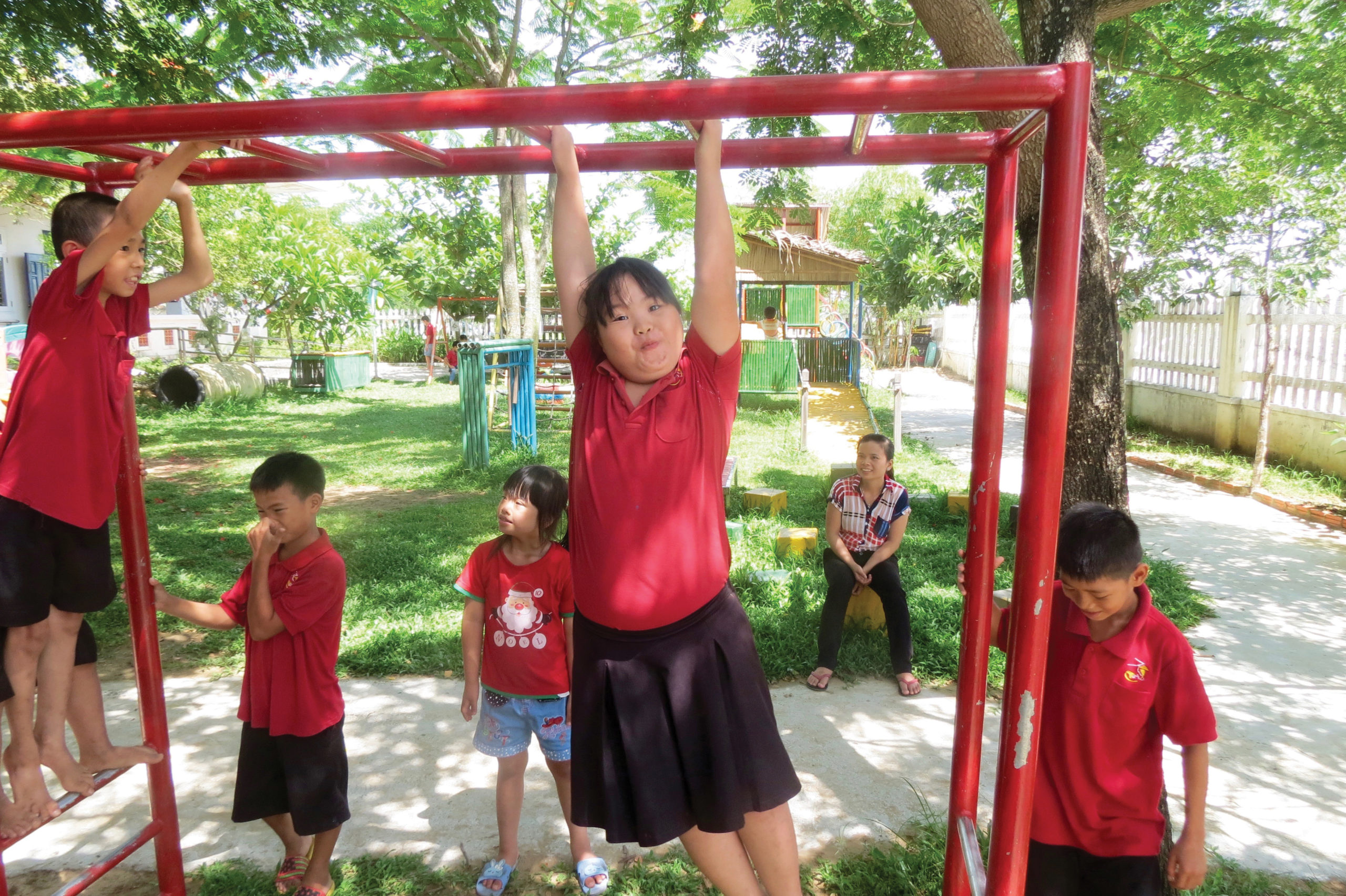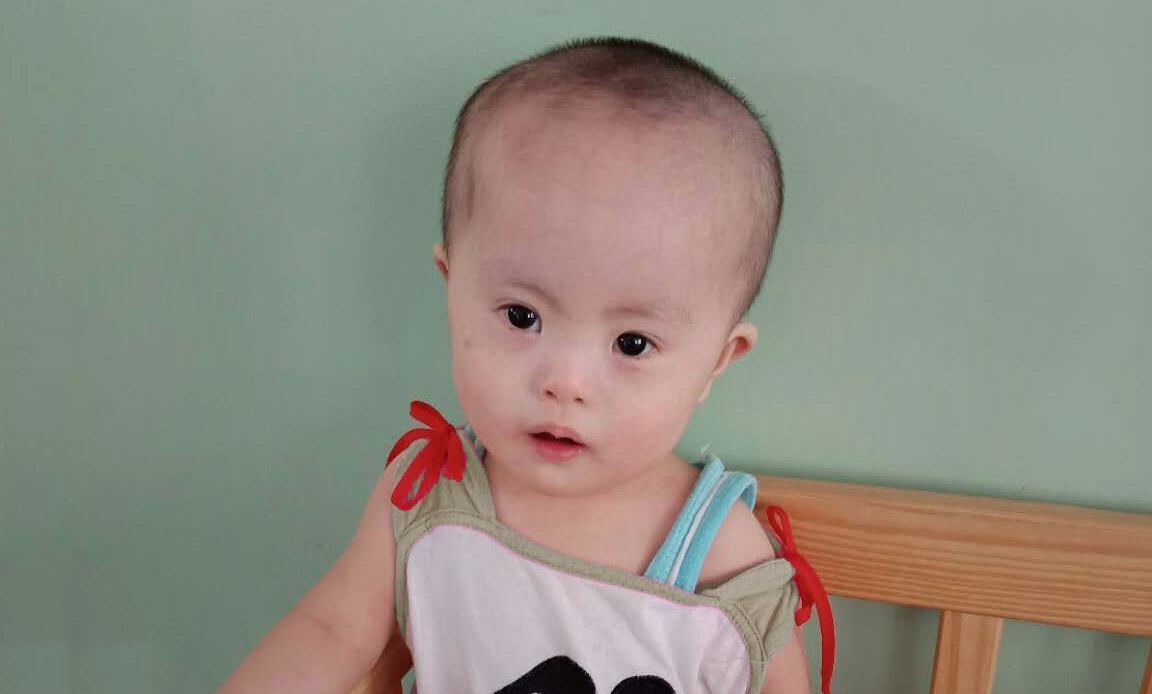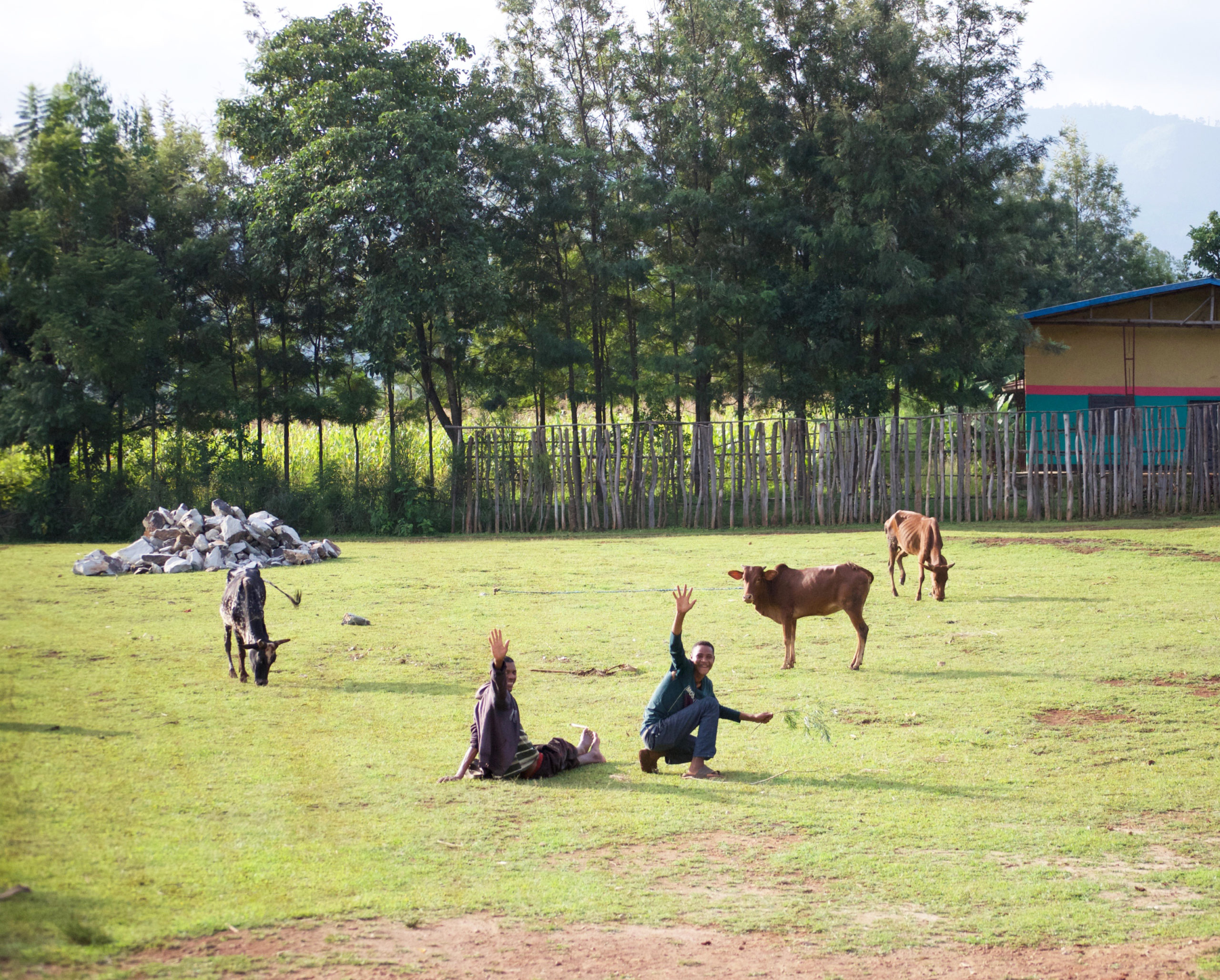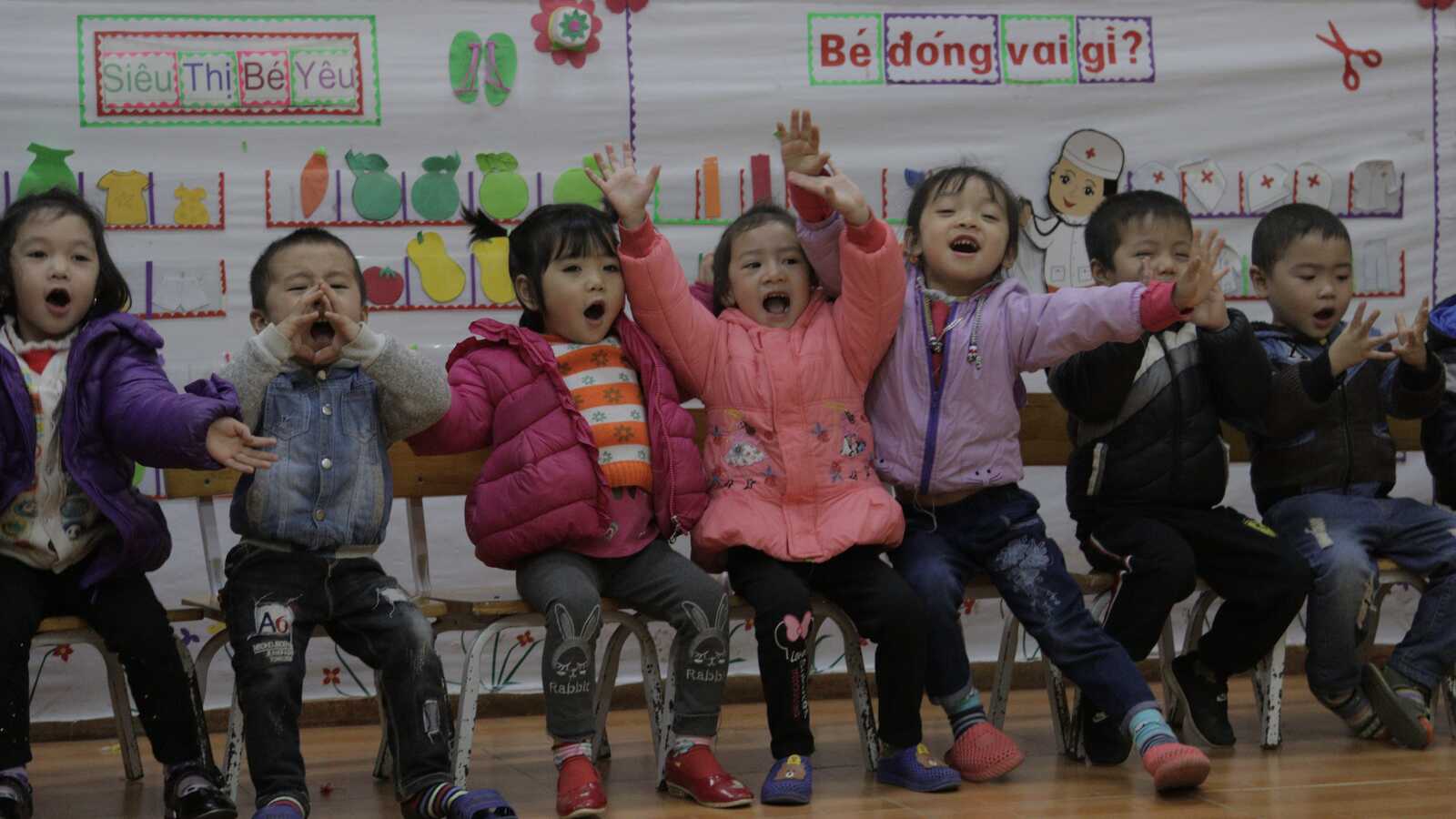There was no school for children with special needs in this part of Vietnam. But now, they have somewhere to belong.
Parents call the school the “happy place.”
“When I first met parents from the school, they cried,” says Thoa Bui, Holt’s senior executive of Southeast Asia programs.“Even seeing their children learn little things — like how to hold chopsticks and feed themselves — was such a big step. This school means everything to them.”
The coastal community of Hoi An, Vietnam sits on a stunning stretch of crystal blue ocean, surrounded by the rice paddy-filled countryside. During the full moon, the city’s ancient downtown is lit by strings of colorful lanterns. Quiet and peaceful, Hoi An is paradise.
But behind the picturesque setting is a darker past.
A Heartbreaking Effect of the Vietnam War
During the Vietnam War, American forces blanketed Hoi An and the surrounding region with the deadly chemical compound Agent Orange as they tried to fend off enemy troops. Thousands of innocent civilians died from exposure. And for more than two generations, women in areas once hit by Agent Orange have given birth to children with much higher-than-normal rates of physical and developmental disabilities.
But, despite tremendous need, resource for children with special needs — like specialized medical care, therapies and education — are virtually nonexistent in Hoi An and throughout Vietnam.
There are very few schools for children with special needs in Vietnam. And many public schools don’t even allow children with disabilities to attend. And with little effort to educate the public about special needs, many parents don’t even realize their child has a diagnosable or treatable condition, such as autism or deafness. Many just believe that perhaps their child is different, defiant or even cursed.
For children from families struggling with poverty, like those in Holt’s programs, the lack of education crushes their ability to hope for a better future.
“Without better education, many poor families have few options to improve their situation,” Thoa says. “They hope that their children will stay in school and eventually pull themselves from poverty.”
Many families in Holt’s programs in Vietnam are rice or vegetable farmers. Their income is unstable — sometimes dropping drastically from one season to the next. On average, they make about $45 per month and survive on about $1.50 per day. This is rarely enough to afford even basic necessities, much less specialized education or medical care for a child with special needs.
That’s why the “happy place,” Holt’s newest partner in Vietnam, is unique.
A School for Children with Special Needs in Vietnam
The Kianh Foundation is the only school specifically for children with special needs within miles of Hoi An — even the entire district. It’s also exceptional in terms of the quality of care, therapy, education, facility and staff expertise — including knowledge and training around early intervention.

“For children with special needs, the earlier the intervention, the better,” says Quyen Do Le, manager of the daily functions at Kianh Foundation. “The younger a child can enroll in school, the more we can help avoid long-term developmental or physical delays.”
Children at Kianh Foundation enjoy a beautiful, fully fenced playground of recycled materials and a gardening space where they learn to grow their own food. Classrooms line both sides of the blue and white school house, and children are divided by age and special need, which helps them make the greatest strides because their curriculum is specifically tailored to their needs. In many developing countries, it’s not uncommon for one teacher to manage anywhere from 40-90 kids per classroom. But at Kianh Foundation, the average class size is 5-8 children per teacher. And children with issues of self-regulation, sensory control or developmental delays receive one-on-one therapy sessions each day.
“Every child progresses here,” Quyen says. “Every child learns new skills.”

The children’s education goes far beyond just academic skills. They also learn practical skills, like how to use money at markets, care for themselves, navigate streets and order food at restaurants. These skills allow children to integrate with their communities and enjoy social functions with their peers.
And, most importantly, the Kianh Foundation is helping to curb a major issue in Vietnam: the abandonment of children with special needs.
Children with special needs are at much greater risk of losing their families. This is because the cost to provide medical care is often too expensive for the majority of parents. Because there are few places of support for children with disabilities, often one parent stays home to care for their child, costing the family critical income. If there are other children in the home, this can have serious implications for the family — causing malnutrition, inadequate housing or life-threatening resource gaps. Out of desperation, many families abandon a child with special needs, hoping that he or she will be better cared for by the government.
But now, through Kianh Foundation, many families in Hoi An have the support they need to continue parenting their children. There is a school for children with special needs in Vietnam — a school specially tailored to them.
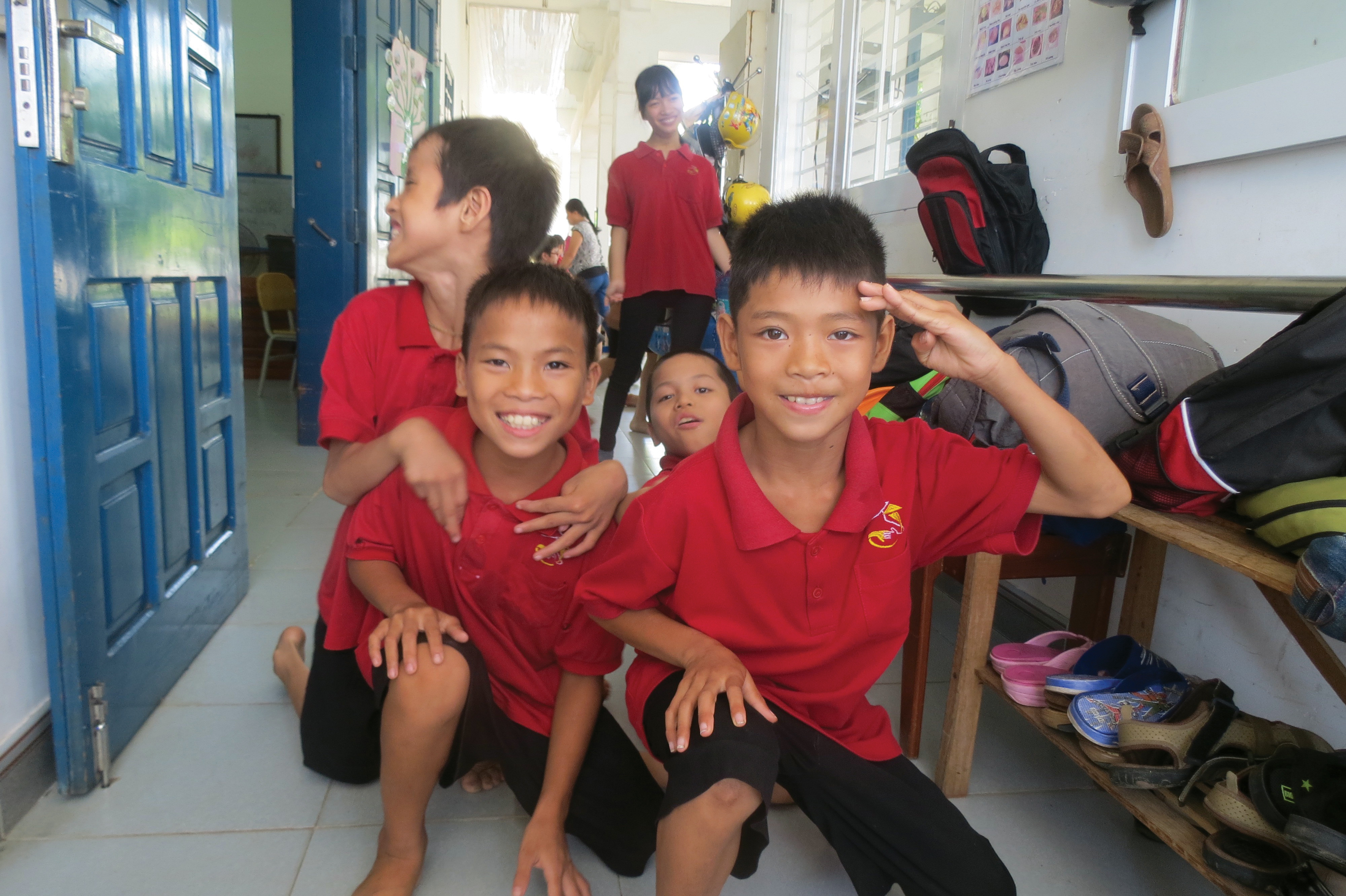
“One mother said she had two happiest days,” Quyen says. “Her wedding day and the day her child came to school. It’s not just because the children are in school. It’s also because parents have support. They can work again and know their child is safe.”
More than 100 children are enrolled in classes, and 80 of those children attend school in the all-day program. Holt’s partnership with Kianh Foundation began in September 2016, and our first goal is to find sponsors for the 80 children in the full-time program. Through sponsorship support, Holt is hopeful that Kianh Foundation can grow in both size and capacity to include more students. Already, the waiting list of children and families who would like to attend includes 80 children, and continues to grow. But with sponsorship donations and other private gifts, we will help ensure that children in this program and other children in need in the community receive everything they need to thrive.
Billie Loewen | Former Holt Team Member
